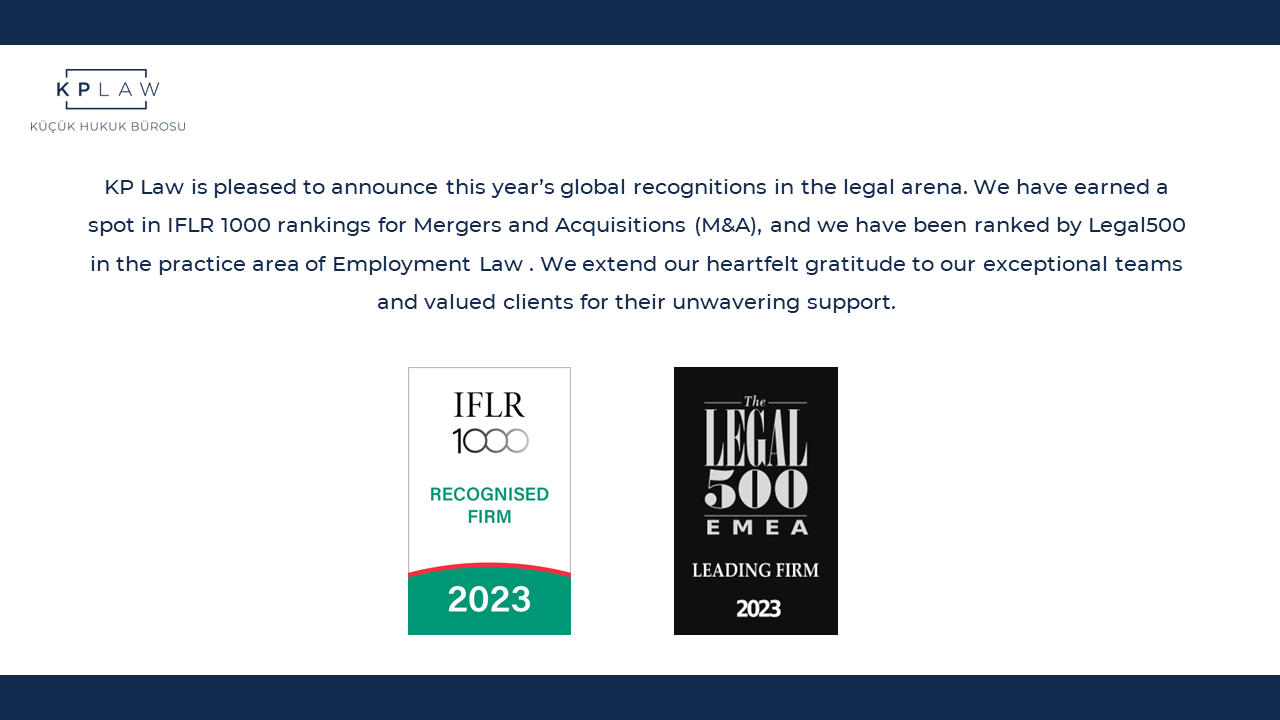News & Insights
How to safeguard brands on Turkey’s biggest e-commerce platforms
The Covid-19 pandemic brought about a significant transformation in the Turkish economy, pushing it towards e-commerce as a safer alternative to in-store purchases. With a staggering 254% surge in e-commerce volume after Covid-19, Turkey's leading platforms (eg, Trendyol and Hepsiburada) witnessed substantial growth. In response to this shift, the Turkish government introduced new regulations to protect intellectual property on e-commerce platforms and uphold consumer rights.
Brand owners need to comply with these regulations while working collaboratively with e-commerce service providers to establish a secure online environment. However, they also need to make well-informed strategic decisions and prioritise national trademark registrations to best protect their brands.
Regulation provides steps for tackling infringement
The E-Commerce Service Providers Regulation, published on 29 December 2022, outlines a roadmap for tackling IP infringements. Its aim is to establish a fair and effective competitive environment, ensuring the development of e-commerce by defining procedures and principles for e-commerce platforms’ activities, supervision and commercial relationships.
The fourth section of the regulation, titled "Infringement of Intellectual and Industrial Property Rights", provides clear steps to follow in case of infringement.
The initial step involves filing a complaint with the e-commerce platform through designated communication channels. This includes:
• internal communication channels;
• notaries that facilitate legal transactions; and
• registered electronic mail.
The complaint should include essential information such as:
• a registration certificate from the Turkish Patent and Trademark Office;
• the complainant's details;
• evidence of the infringement; and
• the internet address of the infringing product.
Once the complaint has been received, the e-commerce platform has 48 hours to remove the infringing listing and notify the e-commerce service provider and rights holder about the action taken. The e-commerce platform must also provide sellers with methods to object to the complaint, presenting evidence that the product removed does not infringe intellectual or industrial property rights.
In cases where the seller successfully demonstrates that no infringement has occurred, the e-commerce platform should republish the product within 24 hours. However, if the complainant fails to provide new evidence of infringement, further complaints regarding the same product will not be processed.
Marketplace internal guidelines aim to safeguard rights
In addition to official regulations, major Turkish e-commerce platforms such as Trendyol have implemented internal rules to safeguard IP rights.
For instance, Trendyol's internal rules prohibit stores from using images containing different brand or e-commerce logos without authorisation. Additionally, sellers are prohibited from using:
• images of designs and patents that they do not have the right to use; and
• product images without authorisation from the rightful owner.
Non-compliance with these rules will result in the suspension of the storefront, with the seller informed of the reason for suspension.
Once the issue has been resolved, the store will be re-opened. However, if the store has been suspended more than three times for the same problem, the right to use the store will be permanently terminated.
Other major Turkish e-commerce platforms follow similar methodologies for suspending and reinstating storefronts.
Rights holders should prioritise national trademark registrations
To optimally leverage regulatory and internal platform safeguards, Brand owners must prioritise official trademark registration in Turkey. Formal trademark registration acts as a robust defence against counterfeiting, unauthorised use and infringement.
Notably, possessing a Turkish national registration holds greater significance, as regulatory and platform enforcement emphasise national filings over WIPO filings. While WIPO filings could likely be enforced, initial resistance might entail greater losses in sales of counterfeit items during conflict resolution with e-commerce platforms.
Foreign brand owners are advised to seek legal counsel, particularly when navigating intricate local laws and regulations. This is especially crucial in Turkey's dynamic market, where nuances such as regional filing versus WIPO filing can critically influence brand protection strategies. Foreign brands must surmount language barriers and attain a comprehensive grasp of the local legal landscape to ensure compliance with Turkish market-specific requirements.
Strategic advice: how to prioritise and focus filings
In a resource-constrained world, brand owners must strategically allocate their efforts towards trademark filings. Here are some actionable recommendations to consider.
Market analysis
Begin by conducting a thorough analysis of your target markets. Identify regions with the highest sales potential and those regions where bad actors may be producing counterfeits or filling for your trademark. Prioritise trademark registrations in these markets first.
Core brand elements
While registering the core brand name is crucial, also consider protecting variations, logos, slogans and other distinctive elements that contribute to your brand identity.
Early action
File for trademark registration as early as possible, even before entering a new market. This proactive approach can prevent future infringements and solidify your legal position.
Local expertise
Engage legal experts who specialise in the specific market's trademark laws. Their local expertise can provide invaluable guidance, enabling you to navigate any cultural or legal complexities effectively.
Continuous monitoring
Implement regular trademark monitoring mechanisms. Legal service providers and automated tools can help you detect unauthorised use promptly and take swift action.
Educate stakeholders
Ensure that your team, partners and employees understand the significance of trademark protection. Consistent branding guidelines can prevent inadvertent infringements.
Global strategy alignment
Develop a cohesive global brand strategy that aligns with your business objectives. Tailor your trademark registrations to cater to regional differences and potential challenges.
Establishing a secure e-commerce environment
By working collaboratively with sellers and e-commerce service providers and adhering to regulatory guidelines and internal platform safeguards, brand owners can establish a secure and legally compliant environment for their brands in Turkey's bustling e-commerce landscape.
Further, through well-informed strategic decisions and a proactive approach to trademark registrations, businesses can better secure and protect their brand's future growth and success in the rapidly changing digital marketplace.
By employing these strategies, brand owners are more readily able to establish a secure and legally compliant digital environment in the Turkish e-commerce landscape.
*This article was originally published in World Trademark Review (WTR) on August 10, 2023. To access the original article, please click here

